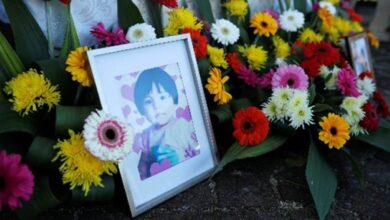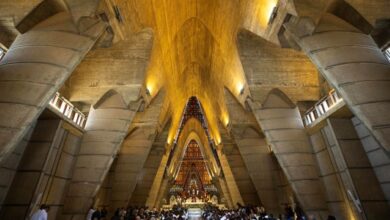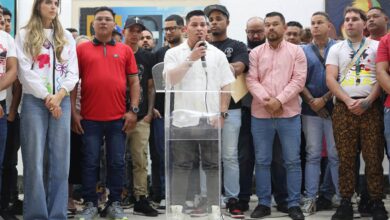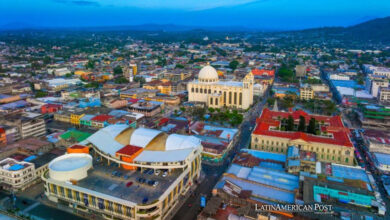Catholic Church Opposes Lifting El Salvador’s Mining Ban
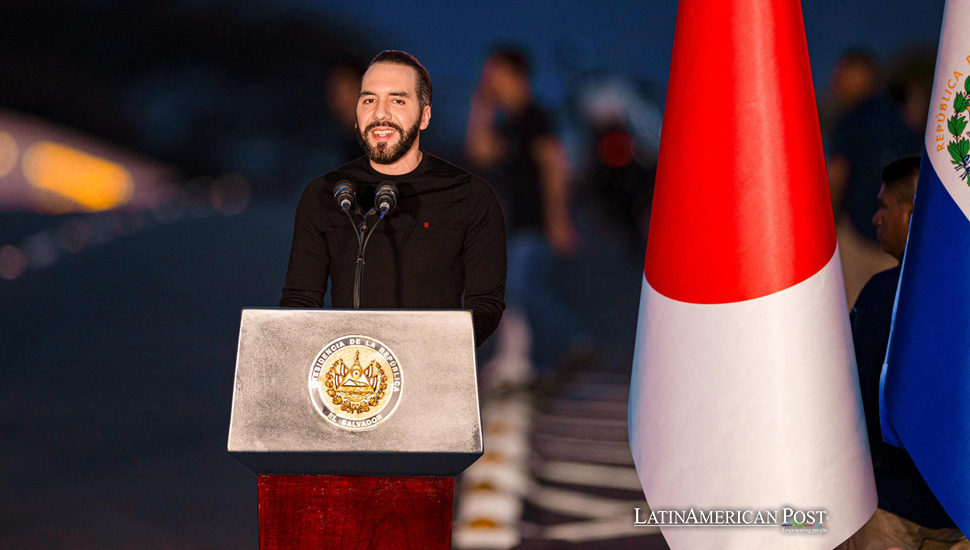
The Roman Catholic Church has urgently called on President Nayib Bukele to maintain El Salvador’s seven-year-old ban on gold mining. The potential removal of this ban could have irreversible effects on the country’s environment and water supplies. This discussion underscores a pressing conflict between economic growth and environmental preservation.
A Growing Conflict: The Future of Gold Mining in El Salvador
On Sunday, Archbishop José Luis Escobar Alas of El Salvador strongly appealed to President Nayib Bukele. He urged Bukele not to end the country’s ban on gold mining. This ban has been in place for seven years. It started in 2017 to protect El Salvador’s water from pollution. During his homily, Escobar Alas talked about the possible long-term effects if the ban ends. He said, “It will damage this country forever.” Many civic and environmental groups agree with him. They have spoken against mining operations.
El Salvador is one of the smallest countries in Central America, but its natural resources have become the subject of heated debate. With deposits of gold and silver identified in the country’s mountains and rivers, the question of whether to mine these precious metals for economic growth has divided the nation. The Catholic Church is concerned about environmental damage caused by mining. Environmental groups and many citizens also feel worried. They believe that mining could harm nature. Meanwhile, President Bukele talks more and more about removing the ban. He calls the prohibition “absurd.” He argues that the untouched gold might change the country’s economy. He believes in the power of unmined gold.
The Origins of the Ban: Protecting Water Resources
In 2017, El Salvador’s government took a bold step. The country entirely stopped metal mining to protect the fragile environment. Mining had polluted El Salvador, harming nature and threatening clean drinking water and safe water. As exploration of gold and silver deposits expanded, the environmental risks became apparent, particularly the contamination of rivers and underground water sources with heavy metals such as cyanide and mercury.
The ban was a significant victory for environmentalists, with support from a broad coalition of sectors, including the Catholic Church. Archbishop Escobar Alas supported the ban. He argued that protecting water supplies was crucial for future generations. Clean water is essential. Without it, El Salvador’s people might face health and environmental issues.
At that time, El Salvador did not have large metal mining operations, and the government had not thoroughly explored its gold reserves. The ban acted as a preventive measure, aiming to avoid possible harm from mining activities before they began. The Catholic Church, civic groups, and environmental organizations supported the ban, labeling it necessary to safeguard natural resources and public health.
Bukele’s Shift: A Proposal for “Sustainable” Mining
Earlier this week, President Nayib Bukele surprised everyone by suggesting a change to the mining ban policy. During his 2019 campaign for president, he supported the ban. He won a second term in 2024. He argues that the gold mining ban hurts the country’s economic future and is very harmful. In a statement on the social media platform X (formerly Twitter), Bukele described the ban as “absurd” and suggested that unmined gold represented “wealth that could transform El Salvador.”
Bukele proposed “modern and sustainable” mining methods that would minimize damage to nature. Critics questioned this concept. Environmental supporters disagreed with Bukele’s statements about “green mining.” One of the critics was Amalia López from the Alliance Against Water Privatization. She quickly opposed Bukele’s remarks. López argued that the mining industry is often associated with severe environmental and human health risks, pointing out that it’s “paid for with lives, kidney, respiratory problems, and leukemia that aren’t immediate.”
López and other environmental activists argue that the risks remain high even with modern mining techniques. Mining operations consume large amounts of water. This situation may worsen the country’s already strained water resources. Extracting metals from the earth involves dangerous chemicals. These chemicals include Cyanide and Mercury. Such substances might leak into nearby rivers and groundwater. People living nearby worry about potential contamination. This concern is serious. This concern is very justified. Health problems may arise over time. Environmental damage is also likely.
Political Landscape: Bukele’s Popularity and the Mining Ban
Bukele’s stance on the mining ban is crucial. He controls El Salvador’s government and has a strong majority in Congress. His party, New Ideas (Nuevas Ideas), has led the political scene since Bukele gained power in 2019. His popularity has stayed high during his presidency, which could give him the political strength to remove the mining ban without facing much opposition.
However, resistance against the proposal is growing stronger. Many members of the Catholic Church, environmental groups, and some political opponents have united in their clear intention to oppose the removal of the ban. Their shared belief is that mining causes environmental damage and is not a sustainable economic choice. Critics argue that the possible economic benefits from gold extraction are far less valuable than the harm to the environment and public health.
El Salvador already faces many economic and social problems, including high poverty and violence. Many Salvadorans are worried that allowing mining would worsen these issues. While gold mining could bring short-term financial gains, critics argue it could lead to long-term environmental damage that would hurt the country’s agricultural sector, tourism industry, and public health. The potential long-term damage of mining is a cause for concern about the future.
Environmental Concerns: The High Cost of Mining
Environmentalists in El Salvador have long warned that large-scale mining operations harm the environment and the people who live near mining sites. Mining is highly water-intensive, requiring large quantities of water to extract and process gold and other metals. In a country where getting clean water is already a big problem, the effects of mining on nature could be very damaging.
Toxic chemicals used in mining are a vital worry. Cyanide is often used to extract gold from ore. This chemical is very dangerous if not kept safely. It might seep into nearby rivers and groundwater, poisoning nature and harming nearby communities. Besides cyanide, mining creates waste filled with heavy metals. These metals could pollute water sources further and hurt local wildlife.
Storing and disposing of mining waste is also a big issue. Mining operations produce toxic tailings, which need careful management to avoid harming the nearby environment. Poorly managed mining waste in many countries has led to catastrophic spills and long-term environmental degradation. In El Salvador, where many communities rely on local rivers for drinking water and agriculture, the contamination risks are especially alarming.
The Promise of Mining Versus Sustainable Growth
President Bukele faces a tough decision regarding gold mining. On one hand, mining could really help the economy. It might create jobs and bring in money for projects like roads and schools. On the other hand, mining might harm the environment and people’s health, which could hurt the economy in the long run. This is a big problem.
Bukele talks about “modern and sustainable” mining, which seems like a way to balance these issues. However, critics say that mining is always harmful. Even if it looks “green,” it probably isn’t safe. Gold and other metals need many resources to extract, and the environmental harm often cannot be fixed.
Environmentalists have different ideas. They suggest investing in more sustainable options. El Salvador could develop ecotourism, renewable energy, and agriculture. These industries would probably provide long-term growth. Importantly, they don’t damage the environment or health like mining does.
A Critical Decision for El Salvador’s Future
The debate about El Salvador’s gold mining ban is a big issue. It tests the country’s dedication to sustainable growth. President Bukele suggests lifting the ban. This is a very important choice. It will decide the country’s path for many years.
Also read : China Expands Maritime Influence Across Latin America
Gold mining could bring economic benefits—these benefits are clear—but the dangers to the environment and people’s health are huge. Many Salvadorans think the choice is obvious. Protecting natural resources is most important. Future generations’ well-being should be more important than quick money.


